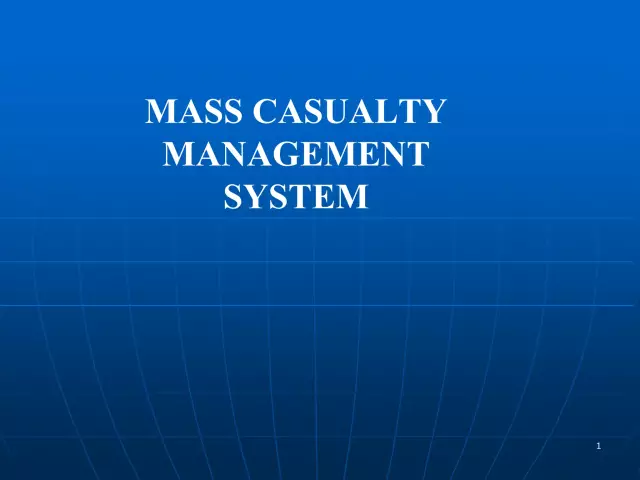- Author Rachel Wainwright wainwright@abchealthonline.com.
- Public 2023-12-15 07:39.
- Last modified 2025-11-02 20:14.
Late abortion
At the request of the woman, an artificial abortion is performed up to 12 weeks of pregnancy.

But life situations sometimes develop in such a way that it is necessary to have an abortion when the permissible terms have already passed. Termination of pregnancy from 13 weeks to 22 weeks inclusive is called late abortion.
There must be good reasons for having a late abortion. After all, artificial termination of pregnancy - an abortion, even at short periods, can cause sad consequences, and what can we say about long terms.
Late abortion is allowed for social and medical reasons, and the final decision is made by a special commission. Social indications for late abortion include:
- Pregnancy resulting from rape;
- The death of a husband during a woman's pregnancy;
- Social incapacity of the mother, for example, under the age of 18.
Medical indications for late abortion are:
- severe pathology of fetal development;
- frozen (undeveloped) pregnancy;
- serious diseases of the mother (hepatitis, tuberculosis, viral infections);
- mental and somatic diseases of a woman, in which the further continuation of pregnancy is contraindicated.
Late abortion techniques
If a decision is made to terminate a pregnancy at a later date, experts determine the method by which the abortion will be performed. Currently, there are three methods: salt filling, minor cesarean section and artificial childbirth.
Salt bathing is currently recognized as an ineffective method of abortion in the late stages, because often leads to the development of undesirable consequences and has a large number of contraindications.
When using this method of late abortion under the control of ultrasound, amniocentesis (puncture of the fetal bladder) is performed and a hypertonic sodium chloride solution is injected into the amniotic fluid. As a result of this procedure, the death of the fetus occurs and a miscarriage occurs within 24 to 48 hours.
Induced birth is a late miscarriage caused by the use of drugs. With him, everything happens in the same way as with spontaneous childbirth, but only contractions are caused artificially.
The surgical method - a small cesarean section, is performed in the same way as a conventional cesarean section, i.e. the fetus is surgically removed from the uterus. Due to the immaturity of the lungs, the baby cannot breathe on its own and dies. This method of late termination of pregnancy is mainly used when the continuation of pregnancy threatens the health and life of the mother.
A late termination of pregnancy is recommended at 21-22 weeks, if possible. it is during this period that complications occur much less frequently.
Abortion at 13 weeks of gestation
At 13 weeks gestation, the head of the fetus is one third of its total body length. Weight reaches about 20 grams, and the length is about 7-7.5 cm. Cartilaginous formations appear - the rudiments of arms, legs, spine, ribs. The intestine begins to make its first peristaltic waves.
Due to the intensive development of the fetus, an abortion at 13 weeks threatens a woman with many complications. This period is the most undesirable for termination of pregnancy. But it is at this time that frozen pregnancies are often detected. To preserve the health and life of a woman in such cases, an abortion is inevitable.
Abortion at 13 weeks is usually done by instrumentation, i.e. the fetus is scraped out of the body of the uterus, but this method is contraindicated in case of an infectious or inflammatory process. It is possible to apply at 13 weeks and open the fetal bladder, followed by suspension of the load on the presenting part of the fetus. In this case, 50% of women experience a prolonged late abortion, which sometimes lasts more than a day and entails bleeding, cervical rupture, and infection.
Abortion at 14 weeks pregnant
At 14 weeks, termination of pregnancy is quite difficult. If circumstances permit, then it is postponed to a later date. If this is not possible, then they resort to scraping the uterine cavity. Dilatation (artificial expansion) of the cervix is performed, destruction of the fetus, extraction of its parts, followed by scraping of the walls and fundus of the uterus. An abortion at 14 weeks is quite dangerous. Therefore, it is most often performed under the control of hysteroscopy.
Abortion at 15 weeks gestation
At 15 weeks of gestation, there is no distinctive feature of abortion. An abortion at 15 weeks is carried out by the same method of dilatation, curettage and fetal evacuation. There is a great risk to a woman's health. Therefore, doctors prefer to prolong the pregnancy until the more optimal term for its termination. Surgical abortion at 15 weeks gestation may be complicated by uterine perforation, massive atonic bleeding.
Abortion at 16 weeks gestation
With a gestation period of 16 weeks, the fetus already reaches a significant size, and its extraction by artificial means creates great difficulties.

Therefore, a surgical abortion at 16 weeks is possible only through curettage, i.e. dismemberment of the fetus and its removal in parts. This method, with a significant volume of the fetus, can injure the walls and cervix. In addition, this is a greater psychological shock for a woman, because at this time, fetal movements, felt by the woman, are already possible.
Therefore, starting from the 16th week of pregnancy, gynecologists give preference to other methods of its termination: a small cesarean section or artificial childbirth.
Any method of late abortion, even performed by a highly qualified specialist, will not give a 100% guarantee of a successful outcome. Therefore, a woman needs to constantly monitor the timing of her menstruation, her state of health and prevent unwanted pregnancy. And if such a pregnancy has come, then it is best to terminate it in the early stages - up to 12 weeks. Ideally, late abortions should be performed solely for medical reasons!
YouTube video related to the article:
Found a mistake in the text? Select it and press Ctrl + Enter.






